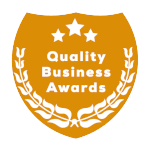Your teeth deserve the best care, and what you eat plays a big role in keeping them healthy. A balanced diet not only nourishes your body but also supports your dental health. The top 10 foods for healthy teeth can help prevent cavities, strengthen enamel, and improve your overall oral hygiene.

Here’s a list of the top 10 foods for healthy teeth:
-
Cheese
-
Yogurt
-
Leafy greens (spinach, kale, collard greens)
-
Apples
-
Carrots
-
Celery
-
Almonds
-
Strawberries
-
Salmon
-
Green tea
These foods are beneficial for teeth due to their calcium content, ability to stimulate saliva production, natural cleaning properties, or other tooth-friendly nutrients.
Did you know that some foods can actually clean your teeth as you eat them? It’s true! Crunchy fruits and vegetables like apples and carrots act like natural toothbrushes, scrubbing away plaque and food particles. Plus, they stimulate saliva production, which helps neutralize harmful acids in your mouth.
You might be surprised to learn that cheese can protect your teeth. It’s rich in calcium and phosphates that help rebuild tooth enamel. Dairy products like milk and yogourt are also excellent choices for maintaining a healthy smile. By incorporating these foods into your diet, you’re not just treating your taste buds – you’re giving your teeth the nutrients they need to stay strong and beautiful.
Building Blocks for Healthy Teeth

A balanced diet rich in key nutrients is essential for maintaining strong, healthy teeth. The foods you choose can significantly impact your oral health.
The Role of Calcium and Phosphorus
Calcium and phosphorus are the dynamic duo for dental strength. Dairy products like milk, cheese, and yogurt are excellent sources of these minerals. They help fortify your tooth enamel, making it more resistant to decay.
For those who prefer non-dairy options, leafy greens are a wonderful alternative. Kale and spinach are packed with calcium and other beneficial nutrients.
Phosphorus, found in eggs and fish, works hand-in-hand with calcium to rebuild tooth enamel. Together, these minerals create a protective shield for your pearly whites.
Your saliva also plays a crucial role. It helps distribute these minerals throughout your mouth, ensuring your teeth stay strong and healthy.
Vitamins for Dental Strength
Vitamins are just as important as minerals for your oral health. Vitamin C, found in citrus fruits, is essential for healthy gums. It helps prevent inflammation and keeps your gum tissue strong.
Vitamin D is another superstar for your smile. It helps your body absorb calcium more efficiently. You can find it in fatty fish like salmon, mackerel, and tuna.
Don’t forget about vitamin A. It’s crucial for saliva production, which naturally cleanses your mouth. You can find it in colorful fruits and vegetables like carrots and sweet potatoes.
Protein-Rich Foods for Tooth Repair
Protein isn’t just for building muscles; it’s also vital for tooth repair. Your teeth are constantly under attack from bacteria and acids, so they need protein to rebuild and stay strong.
Lean proteins like chicken, fish, and eggs are excellent choices. They provide the building blocks your body needs to maintain healthy teeth and gums.
Nuts are another fantastic option. They’re not only rich in protein but also packed with other tooth-friendly nutrients. Almonds, for example, are high in calcium and low in sugar, making them a perfect snack for your dental health.
Preventative Foods and Lifestyle Choices
Keeping your pearly whites healthy is a breeze with the right foods and habits. Let’s explore some delightful options that will make your dentist proud.
Natural Defenders Against Bacteria
Some foods are nature’s little toothbrushes, and they’ll make you smile. Crunchy fruits and veggies like apples, carrots, and celery are marvellous for scrubbing away plaque. They’re like tiny dental assistants working between meals!
Cranberries are a treasure trove of goodness. They contain compounds that stop bacteria from sticking to your teeth. Isn’t that clever?
Don’t forget about shiitake mushrooms. These fungi are fabulous for fighting the nasty bacteria that cause cavities. Add them to your stir-fries for a tooth-friendly treat.
Garlic might not be great for your breath, but it’s wonderful for your oral health. Its antibacterial properties help keep those gums in tip-top shape.
Hydration and Saliva Production
Water is your smile’s best friend. It washes away food particles and keeps your mouth nice and moist. Sipping water throughout the day is a simple yet effective way to maintain oral health.
Green and black teas are delightful choices too. They contain polyphenols that fight harmful bacteria. How lovely to enjoy a cuppa while caring for your teeth!
Sugar-free gum is a handy little helper. Chewing it stimulates saliva production, which naturally cleanses your mouth. Look for gum with xylitol for an extra bacteria-fighting boost.
Mindful Eating Habits
You’ll want to be mindful of what you eat and when. Snacking frequently, especially on sugary or acidic foods, can be tough on your teeth.
Try to limit sugary drinks and carbohydrates. When you do indulge, rinse your mouth with water afterwards. It’s a simple step that makes a world of difference.
Remember, fluoride is your friend. Use a fluoride toothpaste and consider drinking fluoridated water if it’s available in your area.
Frequently Asked Questions
Proper nutrition plays a crucial role in maintaining healthy teeth and gums. Let’s explore some common questions about foods that can help or harm your dental health.
What are the top foods that promote dental health?
Dairy products like cheese, milk, and yogurt are excellent for your teeth. They’re rich in calcium and phosphorus, which help strengthen your tooth enamel.
Leafy greens and nuts are also wonderful choices. They provide essential nutrients that support strong teeth and gums.
Which foods should be avoided to maintain healthy teeth?
You’ll want to limit sugary and starchy foods, as they can contribute to tooth decay. Sticky foods like dried fruit and fruit leather can also be problematic, as they tend to cling to your teeth.
Acidic foods and drinks can erode your enamel, so it’s best to enjoy them in moderation.
How do certain fruits contribute to dental well-being?
Crunchy fruits like apples and pears can help clean your teeth naturally. They stimulate saliva production, which helps rinse away food particles and bacteria.
Berries are packed with antioxidants that can help protect your gums from inflammation.






